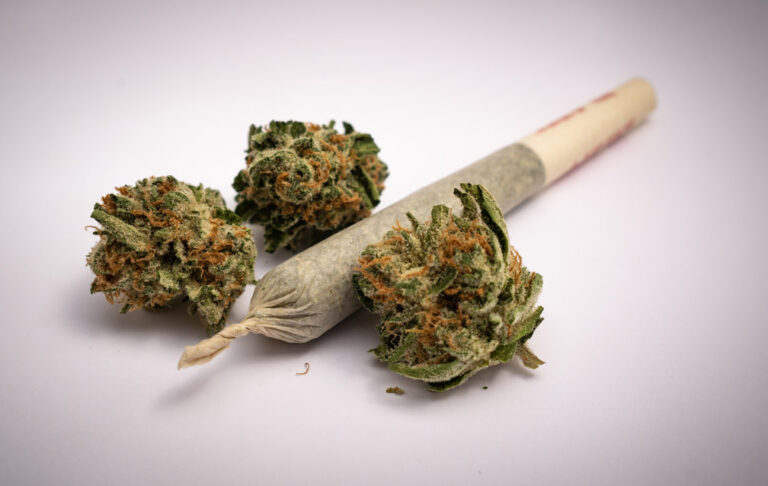LITTLE ROCK, Ark. —Shannon Newton, president of the Arkansas Trucking Association, said legalized recreational marijuana in The Natural State would result in fewer capable truckers and unsafe roadways.
The Arkansas Supreme Court cleared the way in September for voters to consider whether people 21 and over could use recreational marijuana.
Early voting on the issue has already begun in Arkansas, and election day is set for Nov. 8. If passed, it would still be illegal for drivers of any vehicle to operate it under the influence.
Arkansas approved medical marijuana in 2016.
“We have significant concerns about the future safety of Arkansas roadways,” Newton said on Monday, Oct. 31, at a joint news conference with the state’s governor and other officials who are urging voters to cast no on their ballots for the measure. “Marijuana impairs reaction time, decision-making abilities.”
Arkansas, Maryland, Missouri, North Dakota and South Dakota have measures on their ballots this November for voters to consider legalizing recreational marijuana. They would join 19 states and the District of Columbia with recreational cannabis.
A decade since Colorado and Washington approved recreational cannabis, prohibitions have fallen across the country: in big, populous states like California and New York and smaller rural ones like Maine and Vermont. States in the Deep South have not legalized marijuana for recreational use, for the most part, but many have enacted medical cannabis programs.
In May, The American Transportation Research Institute (ATRI) released their 2022 Top Research Priorities that includes marijuana usage as a top research priority.
“As more states move to decriminalize marijuana and other Schedule I drugs, this study would update ATRI’s 2019 report by examining roadway safety and workforce impacts in those states that have changed their controlled substance laws,” according to an ATRI news release. “Unfortunately, these laws were changed without a field-sobriety test that police can use roadside to determine if people were driving while high.”
ATRI President Rebecca Brewster said on the issue: ““We’re looking at the safety impact in those states that have liberalized their laws. We know there are high numbers of drivers who have done a pre-employment screen and they show up in the Drug and Alcohol Clearinghouse, but they do not initiate their return-to-duty process or leave the industry altogether,” said
Law enforcement can be trained to recognize impairment, but they do not have a way to confirm that roadside, she said.
According to a 2021 study by the Insurance Institute for Highway Safety (IIHS) and another by the affiliated Highway Loss Prevention Institute (HLDI), crash rates spiked with the legalization of recreational marijuana use and retail sales in California, Colorado, Nevada, Oregon and Washington.
However, the preliminary results of a separate IIHS study of injured drivers who visited emergency rooms in California, Colorado and Oregon showed that drivers who used marijuana alone were no more likely to be involved in crashes than drivers who hadn’t used the drug.
“Our latest research makes it clear that legalizing marijuana for recreational use does increase overall crash rates,” IIHS-HLDI President David Harkey said. “That’s obviously something policymakers and safety professionals will need to address as more states move to liberalize their laws — even if the way marijuana affects crash risk for individual drivers remains uncertain.”
The Trucker News Staff produces engaging content for not only TheTrucker.com, but also The Trucker Newspaper, which has been serving the trucking industry for more than 30 years. With a focus on drivers, the Trucker News Staff aims to provide relevant, objective content pertaining to the trucking segment of the transportation industry. The Trucker News Staff is based in Little Rock, Arkansas.














